#jane caputi
Text
Pornography is regularly used in ways that have nothing to do with sexual explicitness. Rather, pornography is commonly understood as a form of propaganda, a representational style linked with defamation and desensitization, if not destruction. Patricia J. Williams, who thinks legally, critically, and gracefully about race, sex, and injustice, calls pornography a "habit of thinking," and one that informs all manner of abusive and exploitative attitudes and relationships. Pornography, as I am using the term, is just that, a worldview, a way of thinking and acting that sexualizes and genders domination and submission, from the bedroom to the war room, making domination masculine (even when a woman plays that role) and submission feminine (even when a man plays that role), and making both the essence of sex. By wedding sexuality to inequality, pornography conditions women and men to have a substantial investment in maintaining the oppressive status quo—again, from interpersonal relationships to international politics.
Pornography kills off, and then substitutes itself for, the erotic—the life force, the earthy and ethereal force of growth, fruitfulness, exuberance, ecstasy, connectedness, and integrity. Pornography severs eroticism from intimacy and empathy and bonds it to voyeurism and objectification (of the self and of another). It incarnates pleasure in acts of hatred. It would have all of us believe, even those of us getting the "fuzzy end of the lollypop" (Sugar/Marilyn Monroe's lament in Some Like It Hot, Billy Wilder, 1959), that without a certain measure of power and powerlessness, danger, fear, pain, possession, shame, distance, and violence there wouldn't be any "sex" at all. Of course, the simultaneously pornographic, monotonous, and erotophobic culture tends to make that true. Variously damaged, alienated, and desensitized, pornography can become what we need in order to feel at all.
Some applaud pornography because it allows access to sexual imagery and language and easily offends offensive religious morality. Yet pornography is no real alternative to systemic sex-negative morality; rather it is an intrinsic part of it. Pornography and mainstream morality both stem from and continually reinforce a worldview that first makes a complex of body/low/sex/dirty/deviant/female/devil and then severs these from mind/high/spirit/pure/normal/male/god. For both, sex itself is the core taboo. Moralism systematically upholds the taboo and pornography systematically violates it. In the complex that evolves from this absurdity, taboo violation itself becomes erotically charged. Evil becomes seductive and the good mostly boring. Without patriarchal moralism's misogyny, homophobia, demand for sexual ignorance, and sin-sex-shame equation, pornography as we know it would not exist. And, together, the two work to maintain the sex and gender status quo.
—Jane Caputi, "Goddesses and Monsters: Women, Myth, Power, and Popular Culture."
#jane caputi#feminism#radical feminism#radblr#radfem#women against pornography#anti-porn#feminist film theory
245 notes
·
View notes
Text
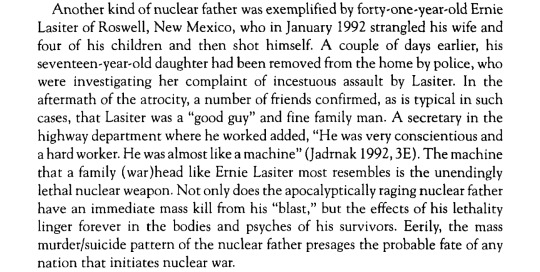
#jane caputi#unthinkable fathering: connecting incest and nuclearism#the effects of his lethality linger forever in bodies and psyches
0 notes
Text
I have reached out to Jane Caputi about republishing / digitizing her book The Age of Sex Crime on every available place I can find her and I think she might have passed away :( I might just digitize it for now. One of my fav hidden gems. It's on the social construction of serial killers in the USA and there is some crazy stuff we take for granted in there 👍
35 notes
·
View notes
Text
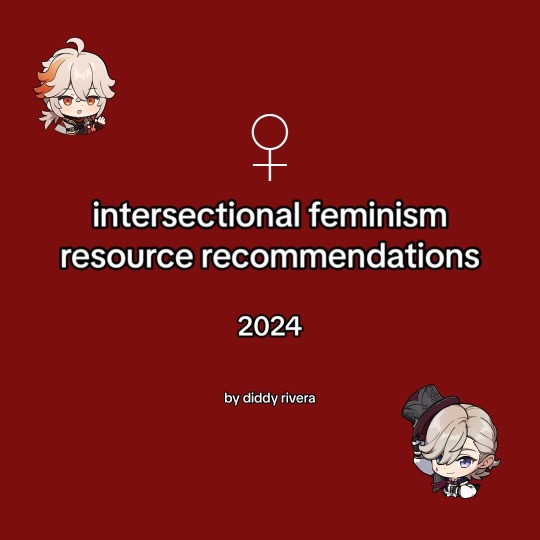
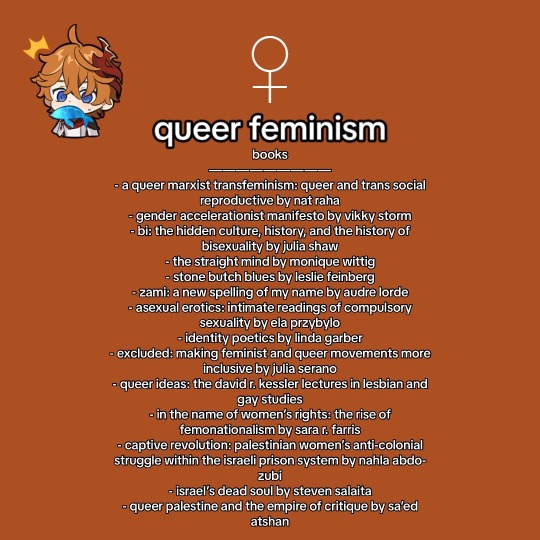
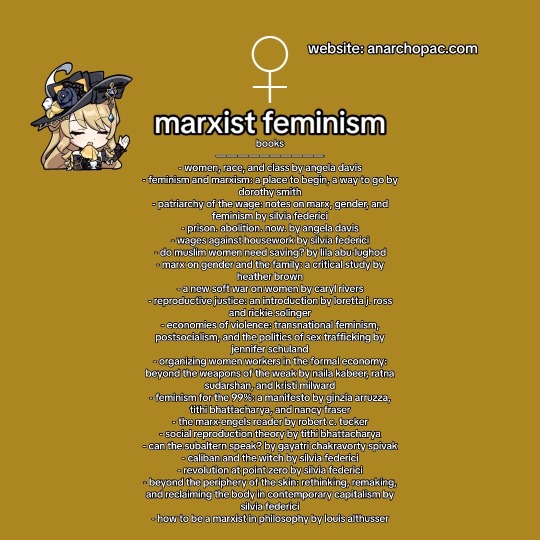
additional resources to marxist feminism:
living a feminist life by sara ahmed
the rise and decline of patriarchal systems by nancy folbre
this bridge called my back: writings by radical women of color by cherrie moraga and gloria anzaldua
delusions of gender: how our minds, society, and neurosexism create difference by cordelia fine
close to home: a materialist analysis to women's oppression by christine delphy
(pdf) the feminist standpoint: developing the ground for a specifically feminist historical materialism
(medium) on women as a class: materialist feminism and mass struggle by aly e
(sagejournals) capital and class: the unhappy moments of marxism and feminism: towards a more progressive union
(substack) the marxfem pulpit by abigail von maure (earth2abbs on tiktok)
if anything else related to marxist feminism, just let me know :)
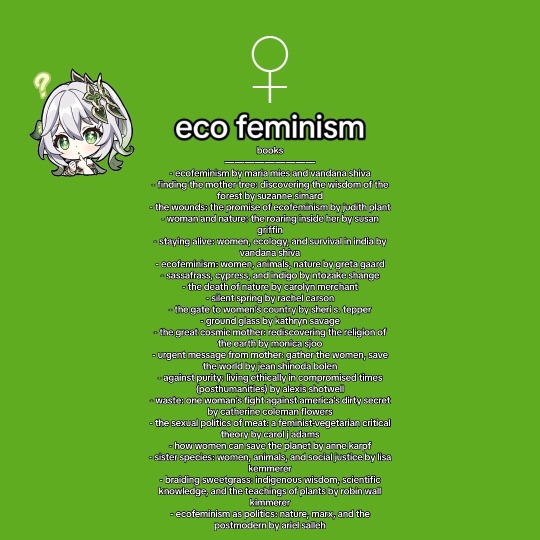
additional resources to eco feminism:
gossips, gorgons, and crones: the fates of the earth by jane caputi
parable of the sower by octavia e butler
neither man nor beast: feminism and the defense of animals by carol j. adams
bitch: on the female of species by lucy cooke
fresh banana leaves: healing indigenous landscapes through indigenous science by jessica hernandez
the intersectional environmentalist by leah thomas
right here, right now by natalie isaacs
feminism or death by francoise d'ealibonne
violent inheritance: sexuality, land, and energy in making the north american west by e cram
animal crisis: a new critical theory by alice grary
unsettling: surviving extinction together by elizabeth weinberg
land of women by maria sanchez
sexus animalis: there is nothing unnatural in nature by emmanuelle pouydebat
windswept: walking the paths of trailblazing women by annabel abbs
andrea smith - rape of the land
andy smith - ecofeminism through an anticolonial framework
carolyn marchant - nature as female
charlene spretnak - critical and constructive contributions of ecofeminism
heather eaton - ecological feminist theology
heather Eaton - The Edge of the Seat
janet abromovitz - biodiversity and gender Issues
joni Seager - creating a culture of destruction
karen warren - ecofeminism
karen warren - taking empirical data seriously
karen warren - the power and promise of ecological feminism
l. gruen - dismantling oppression
martha e. gimenez - does ecology need marx?
n. sturgeon - the nature of race
petra kelly - women and power
quinby - ecofeminism and the politics of resistance
rosemary radford ruether - ecofeminism: symbolic and social connections
sherry ortner - is female to male as nature is to culture?
sturgeon - the nature of race
val plumwood - feminism and ecofeminism
winona laduke - a society based on conquest cannot be sustained
if anyone has any other recommendations related to eco feminism, plz let me know :)
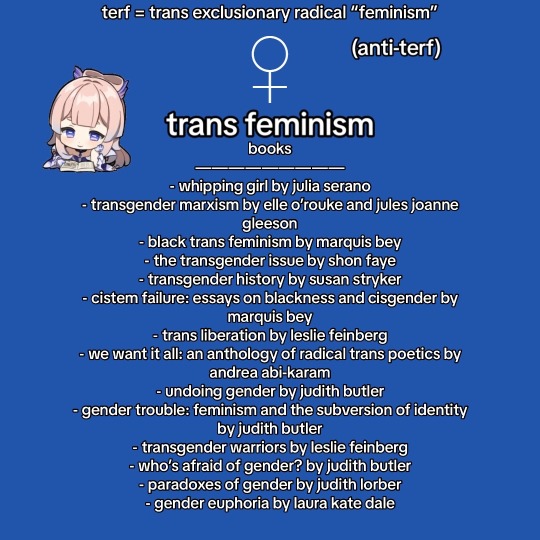
additional resources related to trans feminism:
the empire strikes back: a posttransexual manifesto by sandy stone
(chicago journals) trapped in the wrong theory: rethinking trans oppression and resistance by talia mae bettcher
(philpapers.org) trans women and the meaning of woman by talia mae bettcher
the transgender studies reader by susan stryker and stephen whittle
if anyone has other recommendations related to trans feminism, plz let me know :)
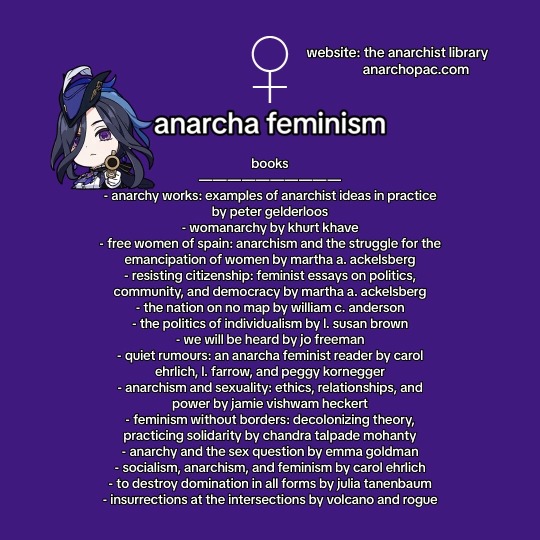
additional resources related to anarcha feminism:
the anarchist turn by jacob blumenfeld
we will not cancel us and other dreams of transformative justice by adrienne maree brown
burn it down: feminist manifestos for the revolution by breanne fahs
reinventing anarchy, again by howard ehrlich
anarcho-blackness by marquis bey
a little philosophical lexicon of anarchism from proudhon to deleuze by daniel colson and jesse cohn
joyful militancy by nick montgomery and carla bergman
wayward lives, beautiful experiments by saidiya v. hartman
we won't be here tomorrow and other stories by margaret killjoy
writing revolution by christopher j. castaneda
paradoxes of utopia by juan suriano
twelve fingers by jo soares
for a just and better world by sonia hernandez
if anyone has other recommendations related to anarcha feminism, plz let me know :)
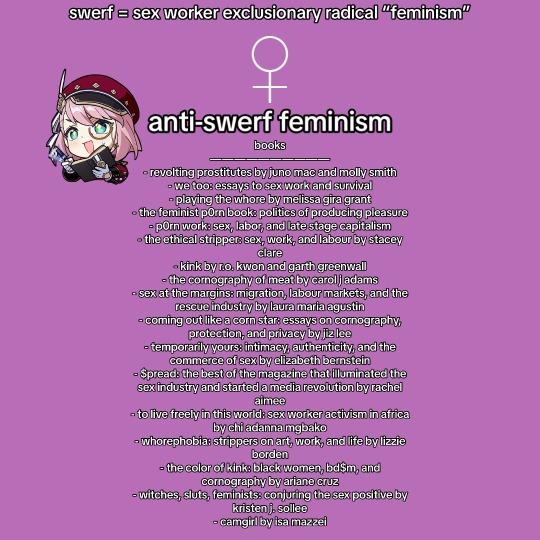
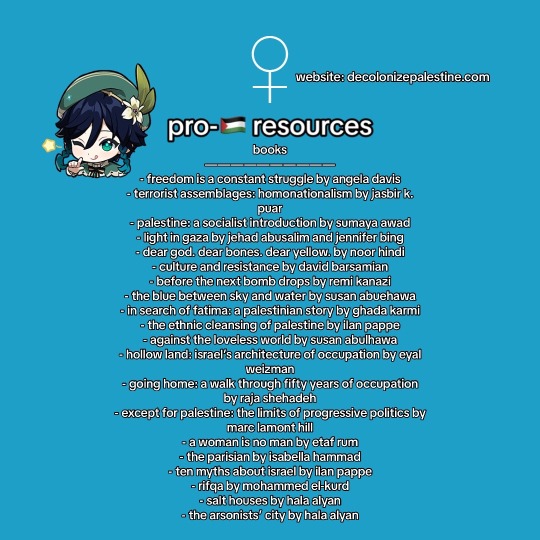
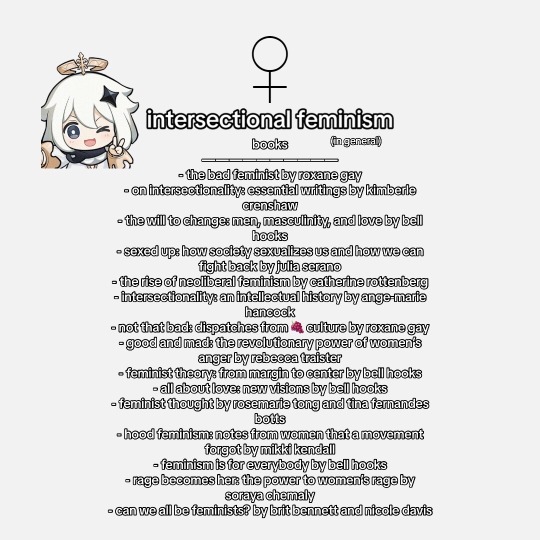
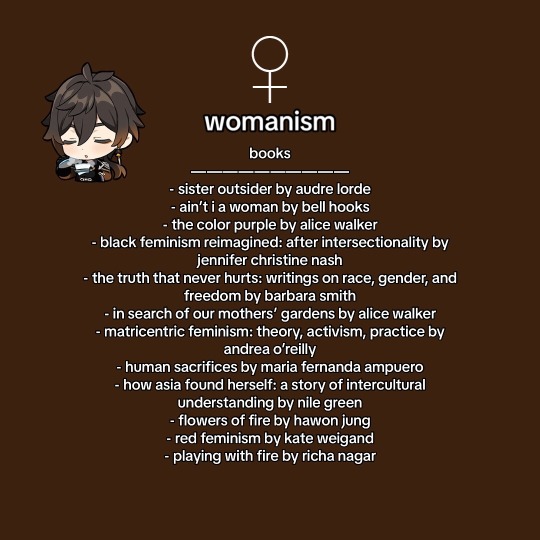
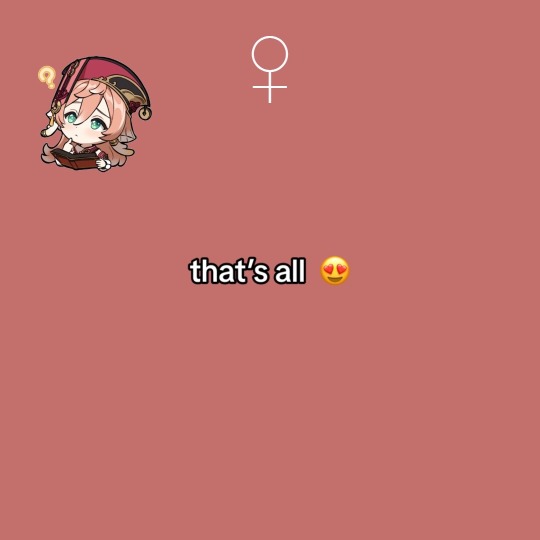
#feminism#intersectionalfeminist#intersectionality#anti terf#anti swerf#womens rights#marxist feminism#eco feminism#anarcha feminism#trans feminism#queer feminism#pro lgbtq+#pro disabled#pro trans#pro palestine#pro sex worker
38 notes
·
View notes
Photo
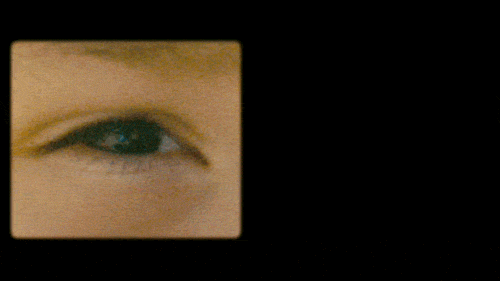
Serial sex killers
Serial sex killers are not monsters, deviants, or inexplicable mysteries but the logical and predictable products of patriarchal normalcy. They are trained and obedient soldiers waging war against the female ― products of patriarchal order, not creatures of Chaos.
Jane Caputi, Gossips, Gorgons and Crones.
0 notes
Text
Anzo-Escobar, Marisol (2029), “Vivas nos queremos: feminicidio y resistencia feminista en tres ciudades latinoamericanas”, Pacarina del Sur. Revista de Pensamiento Crítico Latinoamericano. En línea: http://www.pacarinadelsur.com/index.php?option=com_content&view=article&id= 1794&catid=67
hablar del término femicide nos conduce a reconocerlo como un legado de las académicas feministas anglosajonas, pues fue Diana E. H. Russell quien en 1976 lo usó por primera vez cuando se presentó ante el Tribunal Internacional de Crímenes contra las Mujeres para testificar sobre un asesinato misógino (Radford & Russell, 1992). Del mismo modo, una de las primeras definiciones se la debemos a Jane Caputi y Diana E. H. Russell quienes en el artículo Speaking the Unspeakable, lo definen como “el asesinato de mujeres realizado por hombres motivado por odio, desprecio, placer o un sentido de propiedad de las mujeres” (1993, pág. 34); un par de años después, Jill Radford introduce el elemento de la misoginia al aclarar que se trata del “asesinato misógino de las mujeres por los hombres, como forma de violencia sexual” (Radford & Russell, 1992, pág. 3).
En México, la primera alusión al término remite al año 1994 cuando Marcela Lagarde lo introduce al debate académico (Monárrez, 2009); sin embargo, el concepto cobra relevancia a partir de 1998, cuando Julia Monárrez lo retoma para explicar el fenómeno en Ciudad Juárez,[4] a la luz de una investigación empírica de largo alcance que, entre otras cosas, permite identificar las especificidades del feminicidio en el contexto mexicano a través del concepto feminicidio sexual sistémico, cuya proeza es señalar todos los elementos de la relación inequitativa entre los sexos que confluyen en el asesinato de una mujer, destacando que no sólo se asesina su cuerpo biológico sino la construcción cultural de lo femenino, donde la tolerancia del Estado, que a su vez es amparada por grupos hegemónicos, refuerza un dominio patriarcal que mantiene a familiares de víctimas y a todas las mujeres en un estado de inseguridad latente que se fortalece con la impunidad, pues en la mayoría de los casos no se sanciona a los responsables, lo que constituye el primer obstáculo para acceder a la justicia (Monárrez, 2009).
N o se problematiza interrogando ¿Por qué un hombre determinado asesina a una mujer determinada?, sino preguntando porqué un grupo social asesina a otro (Cameron, 1987), lo que permite conectar “los motivos con los actos violentos de los criminales y yuxtaponerlos con las estructuras sociales de determinada región y las diferencias en la jerarquía del poder sexual” (Monárrez, 2009, pág. 49).
Así, otro de los factores a considerar para entender el feminicidio, remite a los cambios estructurales dados en una sociedad determinada y la forma en que éstos impactan aumentando o disminuyendo las brechas de desigualdad entre mujeres y hombres en el ámbito económico, político y social (Monárrez, 2009; Arteaga & Valdés, 2010). De este modo, en algunos contextos sociales en transición (Arteaga & Valdés, 2010) las mujeres se convierten en “encarnaciones del mal” (Monárrez, 2009), pues salen del espacio doméstico que les es asignado como natural para existir, transfigurándose en “mujeres públicas”, contaminadas socialmente y causantes de los daños que puedan sufrir al ocupar un espacio (público) que no les corresponde y de los males que aquejan a la comunidad (Wright, 2007).
En consecuencia, se configura una necropolítica de género (Sagot, 2013) en la que las estructuras de desigualdad, los discursos y prácticas que éstas generan, son letales para las mujeres, explicitando un biopoder basado en la soberanía, es decir, “en la capacidad de definir quién importa y quién no, quién es desechable y quién no” (pág. 7). Así, la necropolítica de género produce una “instrumentalización generalizada de los cuerpos de las mujeres, construye un régimen de terror y decreta la pena de muerte para algunas” (ibíd.), es decir, representa una forma de pena capital que tiene la finalidad de controlar a las mujeres, obligándolas a aceptar las reglas masculinas para preservar el statu quo genérico.
Estos elementos nos permiten leer el feminicidio como una “política sexual letal que busca controlar a las mujeres que interiorizarán la amenaza y el mensaje de dominación, permitiendo límites a su movilidad, a su tranquilidad y a su conducta, tanto en la esfera pública como en la privada” (Sagot, pág. 8), evidenciando al patriarcado como “una institución que se sustenta en el control del cuerpo y la capacidad punitiva sobre las mujeres” (Segato, 2013, pág. 3). En este sistema, poder y masculinidad son sinónimos, lo que genera un ambiente social misógino en el que predomina el desprecio por lo femenino y lo feminizado. De este modo, los feminicidios son crímenes de poder que pretenden mantenerlo y reproducirlo, por lo tanto, son expresivos y no solamente instrumentales, lo que presupone el reconocimiento de interlocutores más importantes que las propias víctimas (Cf. Segato, 2013).
Toda esta problematización nos permite observar que el feminicidio es una definición crítica aportada y nutrida por la academia feminista (Monárrez, 2017). Fionnuala Ni Aolain (2000) señala que estamos ante una definición crítica cuando ésta: a) permite a las víctimas reconocer el daño que han sufrido, b) posibilita que otros entiendan el daño causado en las víctimas; y c) funciona como catalizadora para otorgar justicia a las víctimas en el marco legal. En este sentido, el término feminicidio ha permitido nombrar el asesinato de mujeres como resultado de las violencias estructurales que padecen, al mismo tiempo ha posibilitado la comprensión del daño causado a la víctima en una escala social y, gracias a su tipificación, debería garantizar impartición de justicia, reparación del daño y sanción a los responsables. Pero, además, como veremos a continuación, esta definición crítica ha dado paso a que las mujeres se organicen para manifestar su rechazo a este crimen letal cometido en su contra.
Mujeres de todas las edades desfilaron por las calles del centro histórico con rumbo a, la que en teoría es, una de las máximas sedes de procuración de justicia en el país, ya no con la esperanza de que algún funcionario atendiera las demandas que han sido archivadas por años, sino para hacerle saber al Estado que la indolencia e indiferencia recibidas por décadas han sido transformadas en un acuerpamiento[7] amoroso que tiene como objetivo resistir el embate patriarcal del feminicidio y las violencias machistas
Fuente: Pacarina del Sur - http://www.pacarinadelsur.com/index.php?option=com_content&view=article&id=1794&catid=67 - Prohibida su reproducción sin citar el origen.
Consultar: http://mapafeminicidios.blogspot.com/p/inicio.html
0 notes
Text
The subject of sexual degradation in the service of domination flooded world consciousness after May 2004, when horrific “trophy” photos that American soldiers took of Iraqi prisoners at Abu Ghraib prison in Iraq were released to the public. They showed Iraqi men stripped, bound, and forced into situation both sides believed to be denigrating-simulating homosexual sex, crawling on the floor, posing for sexual display, and wearing women’s underwear on their heads. In one photo, naked men are made to pile on top of one another, with their buttocks in the air. Standing nearby, smiling and giving a “thumbs up” gesture are a pair of White soldiers, male and female. Shocked and appalled, many recognized the behavior in these photos as torture, meant to humiliate and break the spirit of the prisoners.
What was not widely acknowledged, however, was how often we see women being posed and treated in precisely these ways and worse, not only in pornography but also in fashion magazines, music videos, and advertising around the world, including the United States. And these are not generally recognized as humiliating, torturous and spirit breaking; rather, they are passed off as normal or even “sexy.”
Jane Caputi
“The Pornography of Everyday Life”
1 note
·
View note
Text
L’odio per la donna del femminismo
L’odio per la donna del femminismo
L’odio che il femminismo, ideologia propagandistica malsana e contro natura, ha innescato nei confronti dell’uomo fin dal suo sorgere, ovvero dalla fine del XIX secolo, prosegue la sua strada distruttiva della famiglia e del vivere sociale.
(more…)
View On WordPress
#Diana E. H. Russell#donna#donne#famiglia#femminicidio#femminilità#femminismo#gender#ideologie#Jane Caputi#Jill Radford#maternità#matrimonio
1 note
·
View note
Text
In a key scene in Red Dragon, an FBI agent tells a group of police officers that there is no doubt that the family serial killer will strike again. “Why?” one woman asks him. “Because it makes him God,” intones the agent. Just days after Red Dragon opened, the police found the Death card from a Tarot deck near the scene of one of the shootings. Inscribed on the card was a message from the shooter. It was reported in the media as reading: “Dear Policeman, I am God.”
Such grandiose allusions to divinity have long been a crucial part of the serial killer myth. They proliferate as well in technological, especially nuclear, mystique and metaphor, most famously when the erudite J. Robert Oppenheimer, “father” of the atomic bomb, named the bomb test site “Trinity” and then, while witnessing the first atomic blast, recited the god Krishna’s words from the sacred Hindu text, the Bhagavad-Gita: “I am become Death, the shatterer of worlds.”
More mundane occasions for such utterances occur regularly in popular playtimes. In the media storm that followed the discovery of the inscribed Tarot card in the Beltway case, the public learned that “I am God” is a common declaration by victorious players of violent video games. We were reminded that Eric Harris, one of the two teenaged boys who committed mass murder at Columbine High School in April 1999, was an avid video game player and had scribbled, “I am God” in another student’s yearbook.
The popularity of this phrase in all of these contexts points to a pervasive, if usually unexamined, recognition that violence, control, total power over others, and specifically masculine lethal violence or the power of “unnatural death,” all have a religious character in our culture. Despite much talk of God being “love” and associated with creation, the phrase “I am God” is not uttered in delivery rooms by mothers, or by those getting the news that they have received the Nobel Peace Prize. The dominant notion of god in the Abrahamic patriarchal religions is an all-male being whose defining characteristics seem to be omnipotence, jealousy, righteousness, judgment, and dominance. This notion of god powers all sorts of terrorism: religious, political, criminal, familial, militarist, nuclear, and any combination of these as power-mad men take up that mythic role, “playing god” by waging war, accumulating fortunes, toying with others’ lives, and lording it over everybody else.
—Jane Caputi, "Goddesses and Monsters: Women, Myth, Power, and Popular Culture."
48 notes
·
View notes
Photo

Jane Caputi
2 notes
·
View notes
Photo

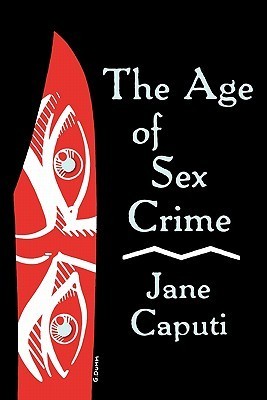
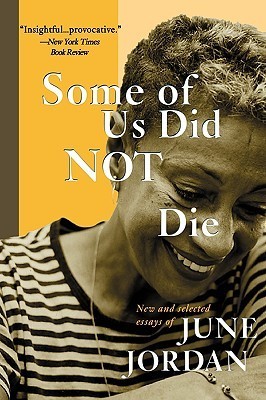
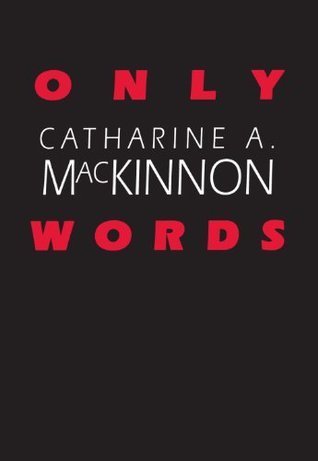
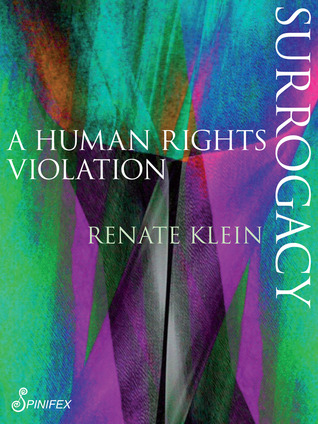
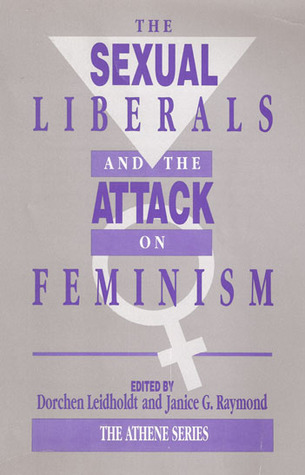
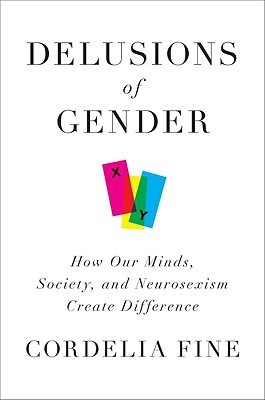

min2019 READING ROUNDUP: RADICAL FEMINIST EDITION
last days at hot slit: the radical feminism of andrea dworkin (gr)
multifaceted dworkin, see her as you’ve never seen her before & face it all.
mayhem: violence as public entertainment by sissela bok (gr)
excellent book from ‘99 on violence in media’s effect on our minds vs. free speech. intense to read in 2019 & contrast/compare how things have gone.
the age of sex crime by jane caputi (gr)
totally mindblowing book about the social construction (!!) of the concept of serial killers in culture. published in ‘87, still really relevant. so many fucked up facts. i found this one super eye-opening.
some of us did not die: new and selected essays (gr)
this collection was so honest & really inspiring. made me want to write, made me glad i read it. jordan explores everything in her own way.
only words by catharine a. mackinnon (gr)
BRILLIANT argument that pornography is hate speech from a constitutional standpoint. really messed up that the legal system just... didn’t change
surrogacy: a human rights violation by renate klein (gr)
approachable crash course to the travesty of the surrogacy trade. i genuinely had no idea past a nebulous “surrogacy seems bad”, this book fixed that
the sexual liberals & the attack on feminism edited by dorchen leidholdt & janice g. raymond (gr)
kind of a bummer to read bc everything they were trying to prevent/predicted would happen has come to pass, but really insightful anthology criticizing libfem values
delusions of gender: how our minds, society & neurosexism create difference by cordelia fine (gr)
really approachable crash course in criticism of neurosexism (the idea of male/female brains ie: girls nice, boys loud etc) appropriate for non-radical friends & family!
sister outsider: essays & speeches by audre lorde (gr)
it’s a classic for a reason!!! an essential collection, especially for radfem poets, white radfems, & those who wish to know the good/bad of our feminist herstory.
#radfem#radical feminist#terfs do interact#roundup#reading list#also read the transsexual empire.................. please
538 notes
·
View notes
Link
Transcript of Interview
Q: What do you see as the origins of violence against women? Is it cultural? Is it biological?
I believe that the origins of violence against women are completely in systems of gender inequity. In systems of basically male supremacy and although many proponents of male supremacy would have us believe that this is always existed on the planet, that it's biologically endemic, that it's inevitable, there's nothing we can do about it, etc., that's not true at all. Patriarchy is a relatively new institution, the last five thousand years or so. And you can find a lot of evidence for this in archaeology, in myth, in legend, things that are discredited by contemporary modes of knowledge which have to be understood as patriarchal in and of themselves.
The emphasis on rationality of this kind of direct evidence that myth is seen as just a fable, something that never existed. For examine, in the very area here, New Mexico, the creator of all is spider grandmother who thought, spun, dream wove the world into being. And there was a whole different system, that Allen writes about very eloquently in her book, The Sacred Hoop, which she calls a gynecentric system, in which the emphasis is not on competition, power over, domination, but rather on equality, harmony, balance, tolerance for a wide diversity of life styles, the centrality of powerful women, being absolutely necessary for society to function well, not any kind of belief in corporal punishment of children, extremely low incidence of rape, no idea of an institution of prostitution or pornography because sex as sacred and not associated with any kind of negativity. So, these systems did exist on the planet everywhere, in Europe. When I was a child all I wanted to read was myth, and stories of goddesses or I knew that this betokened another kind of reality, that this one that we live in now is not permanent and it was not here always forever.
Q: What causes men to be violent against women? Does it boil down to an underlying inequality between men and women? Does this mean that the answer is equality between the sexes?
What causes men to be violent then is basically an enforcement. That if you have a system of oppression, one group is being subordinated, in this case we're talking about women, and in some way you can propagandize and brain wash the subordinated group into agreeing to this. Well, I really am more passive, I really am subordinate. You know, we're given those messages all the time through the mass media, through religion, in which we're told that women are premordally evil, etc. But obviously, that's not going to work completely, we're going to resist. And we're not going to buy into all that ideology so the second level of enforcement is violence, actual violence. So I see the whole gamut from sexual harassment on the streets, in the office, through rape, through battery, through incest, through sexual murder, through a level of enforcement, to keep women in our place, to tell us that we can't speak out against atrocities and to serve as a lesson to all of the women. This is what will happen to you. You are prey in this culture, you are an object, you be obedient or you're off basically, so I see that violence serves an absolute function. It's not a deviation, it's not a monster from Mars. We have to look at it as absolutely functional to keeping the status quo going, to keeping the system of male supremacy working.
Q: You've said abusive men aren't abnormal or deviant, but the norm. Can you explain? What about rape in the home? You've made an interesting comment that these behaviors are not taboo, that it's talking about them which is taboo.
In that violence, it's not the norm in that everyone does it. It's just I think that there's some deception going on about it that we don't really want incest to happen. There's really an incest taboo. According to a 1992 government finance study, 36 percent of all rapes of women in this country are rapes by a family member. There's some deception going on. What is really taboo is speaking out about that, saying that the nuclear family is not really this haven of comfort and warmth, but that really according to the FBI women are nine times safer on the street than they are in the family. That's where you're most likely to be beaten, most likely to be raped. Eleven percent of all rapes take place of girls under the age, I mean, excuse me, 67 percent of all rapes are under the age of 18. About 29 percent of the girls under the age of 11 -- these are taking place in the home. Eleven percent of all rapes are rapes by a father or step-father. People who talk about family values, it's really a code word for a racist, sexist enforcement of family values, gender inequality, the idea that women and children are the property of the father. These are the values. It's really about control.
Q: What about the theory that violence is an inherent part of male biology?
I think the real stress on biological essentialism right now saying that men are born this way, women are born this way and we also see it in term of racism. For example, when something like the Bell curve, saying that whites or Africans are necessarily more, less intelligent, whites a little bit more so, the Japanese the highest. They put that in to make them not look like white racists. But, you know, all this kind of stuff is a backlash to thirty years of activism saying the culture is responsible for these kind of differences. That even I would argue that what we understand as biology is filtered through our cultural preconceptions. For example, think of the scenario that we all see, whether it be in a movie like "Look Whose Talking" or just what we've understood through education, of when a woman gets pregnant. The sperm is seen as this kind of heroic warrior, traveling up through this dangerous territory to penetrate and conquet the egg. We see that all the time. Really, why don't we look at that as the egg as this magnificent huge dominant fascinating force that draws the sperm to her, etc. We understand biology through cultural lenses. And what is, what was biology in the 19th century is now understood as scientific racism. The sciences of, for example, measuring skulls to prove that women of all races or Africans or Native Americans had smaller skulls and therefore lesser intellectual capacity. I would say that what's happening right now in all this emphasis on men are innately more violent and women are innately more passive and stuff like that is scientific sexism, nothing more.
Q: What sort of role has religion played? Does religion teach that men are superior to women, that female sexuality is linked to evil?
Religion is one of the most important sources of violence against, of the ideology for violence against women. It first gives us this idea of sex negativity. That sex in which women are really always implicated as the sex, we are the sexual ones. Be we mothers or prostitutes or temptresses or whatever. The whole story of Adam and Eve, that Eve was the one responsible.
Religion is absolutely fundamental in perpetrating violence against women. It is one of the key ways to communicate the ideology of male supremacy. First of all, God is male. There is no female principle. It was the people who demanded that Mary even in the Christian religion be given a place of honor. The cathedrals in Europe were built to her to recognize people's understanding that there is something feminine about the divine as well. But patriarchal religions would have us believe that all divinity is male and only male. And that coupled with the idea that female sexuality in women is evil, as for example in the Garden of Eden myth and that it is up to men to dominate both women and the earth, give us a script for all kinds of violence against women, which, of course, I connect up with violence against the earth in that the earth and women are seen as passive, as submissive, as out of control and thereby need to be controlled, dominated, etc. God tells Eve, "This is your husband, Adam, you will submit to him, he will lord it over you and basically you'll love it.” Yeah, right. That's the Bible.
So, religion often promotes an ideology of male supremacy, which as I said I see as the root of violence against women. We also get this whole idea of sex negativity. That sexuality is sinful, that the body is shameful. Then of course women are the sex, so it is our bodies that are seen as somehow contaminated, that we are seen as somehow kind of filthy. And so therefore you're given the choice to be this Madonna, this absolutely pure virgin mother or whatever or the whore, the one who epitomizes sex. These are of course both aspects of one persona. So it seems to me that therefore, it's also Christianity that even though, for example, fundamentalist Christianity rails against pornography that pornography is really Christianity's evil twin, to use soap opera jargon, that it's really the same thing. That both of them depend upon women and the idea of sex negativity, that the body and sexuality is somehow obscene, filthy and dirty. You don't have pornography without that, you don't have Christianity without that. On the submission of women, on a rather deadness, a kind of loss of the sacred involving sexuality that I see in both, in Christianity, the only kind of sex you can possibly have and then you're not supposed to enjoy it too much except as marital heterosexual procreative sex. No idea of ecstasy, of communing with the Universe, in any kind of sacred sexuality which characterizes what are seen as pagan cultures. So, pornography is of course the off-shoot of this terrible negativity, of sex as really just objectification, filthy, obscene, behavior.
Q: Doesn't this also lead to eroticizing the forbidden?
Okay, so what I see as happening in the Garden of Eden Myth is that sex supposedly was the sin that Adam and Eve committed. So then there's this injunction like that's considered to be the forbidden fruit. So we have this whole notion of the forbidden as being something that is also extremely desirable. And it seems to me that what patriarchal culture is about is about eroticizing the forbidden and therefore sanctioning taboo violation, making taboo violation itself an act of sex. An act that someone's supposed to get off on in a way which I see therefore as feeding, for example, incest. It's the forbidden that actually becomes more appealing, it's the violation of innocence. You're really acting out the culture's dicta. I mean, think of "Star Trek," to boldly go where no man has gone before. So there is no limit. No taboo, we just sort of march in uninvited and I think that's an injunction that is tied to this idea of the taboo. That rules are made really to be broken. It's thrilling to march in without invitation, justifying everything from incest to manifest destiny to all kinds of cultural imperialism.
Q: And so we have incest as an ultimate taboo?
Well, as I talk about incest in the nuclear family, obviously incest is not a real taboo. It's committed at an alarming rate. And that's just what is reported. We all know that these kinds of crimes are grievously unreported because of ideas of shame, because of pushing the memories so far back you don't have ready access to them, etc. So, incest in the nuclear family or child sexual abuse by priests, has been hushed up forever. You know, it's not really taboo. Everybody knows it's going on. But the taboo of silence is breaking up. That's what the feminist movement has been about. Breaking that conspiracy of silence: be it against child sexual abuse, wife beating, etc.
Think of what happened to Sinead O'Connor when she was on "Saturday Night Live." That time, I think it was in 1992, when she ripped up a picture of Pope John Paul II. And she was making a political statement. She was protesting the church's complicity in covering up incidences of child sexual abuse by the priesthood. She was excoriated for that in the press and the very next week Joe Peshi comes on and says, "I'm Italian and thank God it's Columbus Day.” And then goes into saying how he wants to smack her around and the crowd is roaring its approval of him smacking her around. So clearly here we see what I'm talking about -- about violence against women as enforcement of women staying in their place. Not speaking out and naming the atrocity, that's the taboo, not committing it. And I find it very interesting that when feminists are always accused of censorship, here's a real incident of censorship, in that when Saturday Night Live repeats these episodes, they censor Sinead O'Connor. They do not censor Joe Peshi advocating battery as a solution to women speaking out against abuses.
Q: What of the inherent differences between the sexes? Doesn't it all boil down to gender difference? Can we discuss these things without discussing gender differences?
I think absolutely we have these ideas that there are these genders, masculinity and feminity and that masculinity is something that all beings with certain kind of hormones and male genitalia have and there's this femininity. I think that differences between men and women, this whole creation of the opposite sex is a way to create male supremacy. You create difference and then you repress one-half of it and you create enmity, you create this kind of opposition. So, I really look at and then everybody says it's nature and it's innate. But why do we have so many cultural, so much cultural brainwashing to make it happen. Little boys, what you wear, how people can speak to you. You know the whole masculine or feminine conditioning which begins right at birth if not before. How you know now that everybody's finding out the sex of their child and probably even treating it differently in the womb when it's a fetus. But okay, what were we going on? I'm thinking, okay, the cultural construction of masculinity.
It seems to me that masculinity in all of the culturally approved avocations of masculinity is somehow associated with force and violence. That men are suppose to be identified by their bodily strength and that almost all the male initiation rights, all the whole culture of masculinity, the heros that we see be it Indiana Jones or Rambo or John Wayne or Charles Bronson, or whomever, they're all predicated on some kind of violent action. Therefore we understand that to be a man and that being a man, you're not born a man, you become a man according to how the culture says what a man is. The culture makes you into a creature who is ruled by a commitment to violence and that male heroes and male villains, be they cops, be they criminals, they're all bonded by their commitment to violence. And so I think what we really need to do is deconstruct masculinity, destroy notions of cultural masculinity and femininity. I would be much more in favor of a world in which we didn't see ourselves as opposite sexes but as existing on a continuum in which the feminine within men as well as within women was honored. And there would be women who be more traditionally masculine even than some men, etc. Understand that we're on a co-continuum, we have much more in common than we have separating us.
Q: What do you think of Robert Bly and his theories?
Robert Bly. I mean, I find him interesting in that I basically like his response of going back to the old tradition, but my liking of it stops about there. He goes back to an extremely sexist fairy tale in which the guy becomes a hero by basically winning in war and then capturing as his prize a princess. I mean this is absolute sexism. Violence initiation, and then you know the princess as object trophy prize. So, the women is a sex object. I think what he preaches basically is that women are inadequate. That men need to find themselves in a separatist community with other men. And I find historically that men having separatist communities, and even right now culturally male fraternities, male sports, etc. These are the sites of some of the worst violence against women. And that's where I think men are suppose to, the way in which one becomes a man in this culture is by rooting out the feminine within the self. By denying the mother, which Robert Bly is all about. Bonding with the father and rooting out all traces of the feminine within the self which he says you can only do in all male communities. That's completely the patriarchal root to manhood. And women are inadequate for this. What Sheri Hite's research shows is that boys who grow up in households run by single women are far more respectful to women, show lower incidence of violence, etc. So you know, I think that's absolute nonsense that women can't really create men. So what my problem with Bly is that I think he's profoundly misogynist. Women are again a lesser contaminating presence and need to be conquered or overcome in order to actualize manhood. That's again the patriarchal script.
Q: Hasn't violence against women been legally sanctioned for centuries?
It's been different throughout the history of patriarchal culture. For example, we talked about patriarchal religion in the early modern period, around the same time as the voyages to the new world, beginning with the use of Africans in slavery, you had the European and the whole enlightenment, the whole ascendence of rationality. You had the burning of women as witches, throughout early modern Europe, and some men. Probably anywhere from 300 thousand to a million. And this was completely legitimated by both church and state. So violence against women there was the law. You had to do it, it was absolutely approved.
Now a'days, we live in this time of that kind of pseudo taboo I was talking about. It's supposed to be taboo but we all know that on "General Hospital" when Luke raped Laura. It makes it glamorous, it eroticizes that kind of violence against women and it makes it appear consensual. As if women seek this out and want it. It makes it extremely normal as well. Let me just think of a few examples. I mean, we all know the notorious "General Hospital" where Luke raped Laura and then later married her, so it made it seem as though rape was some kind of courtship ritual (laughter). I mean Calvin Kline sells this obsession and gives us these very erotic images of a man, of a naked man carrying a naked woman over his shoulders.
It's underscoring both male dominance but also the idea that love is somehow synonymous with obsession. I mean that's what leads to four women in this country every day being killed by men who say they love them (chuckle) but most women in the country who are killed are killed by men who say they love them. That's really obsession and we should never confuse the two, obsession and feeling that the woman is somehow your property. But we're taught this all the time. And "Pretty Woman" considered a light-hearted flick and Richard Gere decides that he wants to marry Julia Roberts after he realizes that marriage is really ownership, he's not just renting her as a prostitute any more. He can actually own her. Remember the scene where he looks at the jewelry and says, "Oh, I don't have to just rent this, I can own it.” And he's talking about her too. So, I think in all kinds of ways it's made to seem either very normative, very happy and beneficial, or very erotic, a very heroic, be it these constructions of masculinity as violent enforcer, such as Rambo, etc.
Q: So, does the media contribute to these notions or merely reflect them?
Well, I think it's a dialogic process. The media both sells us what we want but also decides and conditions us to want what we want. So it's a two-way street. It's always going back and forth. And it's not just sort of an injection, but media puts these things in our heads. But it shapes what we want as well as then satisfying that want.
We all react differently to those messages. That's a real common theme in contemporary cultural studies, that people can negotiate meanings and take something out of it that somebody else didn't get out. For example, and you'll see that argument used to justify pornography all the time. Well, I read pornography and I haven't raped anyone, etc. etc. But what we need to do is take collective responsibility that, for example, the most common sexual activity of serial murders according to the justice department is using pornography. And that even if an individual can look at a particular type of pornography and not cultivate a desire to go out and sexually murder, we have to take responsibility for that a significant portion of the population does use this material to feed those fantasies and to provide a script for carrying out that kind of behavior. And so it's not a question, I think that a capitalist consumer culture always emphasizes, we have this kind of liberal emphasis on individual rights, my rights, my rights, my rights. How about cultural responsibility. Again I think that's a feature of a gynesophical or gynecentric system. That we really do have to look for a common good in some way and take some responsibility. Understand, set some limits. And again, we live in a culture in which limits are there only to be transgressed.
Q: Is the solution censorship?
I would veer away from censorship. That's why I like the law that Andrea Dworkin and Catherine McKinnin drafted that would make it that a woman or anyone injured by pornography could sue in civil court. So I would never give the police power to seize materials and to prohibit because I think that we could go into the kind of society that Margaret Atwood describes in the Hand Maid's Tale in which you have what I talked about as the right wing side of the women oppressive agenda that sort of the Christian woman as object, woman as reproductive breeder and maybe whore on the side and that's it. Right, that kind of circumscription of women's freedom. But I don't want the purely pornographic libertarian you know, all the women getting raped and incested that we have right now either. So, we're allowed to swing back and forth between modes but never to get beyond them. I'd like to get beyond that. So no, I'm not in favor of censorship.
I'm in favor of one kind of collective responsibility, maybe suing in civil court, there's some legal remedies that have been proposed but I'd never give the police power to seize materials. That would be immediately abused. What I think we need is to really create an alternative consciousness and to create change in the culture through what I call in psychic activism, through generating alternative forms of eroticism, alternative forms of erotica, alternative myths, narratives, symbols, stories. And I think what I would call upon women to do is to reverse the kind of sex negativism. Part of our oppression has been to tell us that we're either these pornographic whores or we're completely asexual. To demand and exercise our sexual autonomy, to become what I think of as bawdy women. You know, were really to speak. I mean we're not really suppose to express our sexual desires outside of pornography. Its seen as some how very lacking in taste, a very unlady like or whatever. I think whenever we criticize pornography we have to do it in a bawdy way to affirm sexuality, to reverse the kind of sex negativism of that strain of patriarchy of the Christian side. To be vulgar in the sense of like bawdy, earthy, in touch with our sexuality. And therefore, I think we break those false opposites of sex negativism or pornography. And move into a new paradigm.
Q: There's some controversy as to whether rape is a crime of violence or a crime of sexuality? How are violence and sex intertwined?
I think it's really specious to separate violence and sexuality. I would disagree with some of the early feminists who you know we all change our minds as the theory gets worked out, who would say rape is a crime of violence, not a crime of sex. Because unfortunately in this culture, sex is completely interfused with violence, with notions of dominance and subordination. As I said, I believe our gender roles are constructed so we have these two constructed genders, masculine and feminine that are defined by one being powerful and one being powerless. And so therefore, powerlessness and power themselves become eroticized. And in that violence becomes eroticized. Domination, subordination become eroticized so that whether you know somebody is actually exerting dominance in a sexually explicit way as in pornography or doing it in a mainstream way, for example. That's seen as somehow sexual. Because the domination itself, the violation itself has become sexual according to this gender hierarchy system.
I realize that there are some biologists that would say that violence is just a means men use to get sex as if sex were just this sort of innate thing that we're all born knowing what it is and wanting. Rather I see sex as a culturally constructed in the way our sexuality is expressed. For example, the idea that intercourse between a man and a woman is sex. Right? Preferably with him on top penetrating and thrusting and her lying still. Right? I mean that's a cultural notion and one induced by male supremacy. So this sex that he's getting is really a model to justify, that he's saying is innate, is a model to justify a very oppressive male dominant form of sexuality that is completely culturally conditioned. Rape is sexual, yes in that force and domination of women has been sexualized. That's how it's both violent and sexual at the same time. We need to recognize how they work in tandem.
Also, I mean, some theorists who I would see as whether consciously or not in complicity would rape would say, "Well, it's just that there's this very attractive woman and rape is the only way I can get her or something like that,” that this justifies. But that in no way speaks to the reality of rape in which extremely old women who are seen in this country or in this culture again in a patriarchal culture as completely undesirable are raped, in which little babies are raped, in which it's just a question of which woman is most vulnerable at a particular time, is most easy to be preyed upon. That theory doesn't jive at all with the way that rape is actually promoted. It's based on there's an available victim that I can intimidate and conquer at this particular point.
Q: What do you think about developing alternate notions of eroticism?
Anything that I talk about with pornography, I stress the needs of developing an alternative notions of sexuality alternative notions of erotica. I think we have to have a counter culture. I know Newt Gingrich has declared war on the counter culture. But that's because I think that's the reason he does it, I think is because that's where the most powerful force is for change. If we change cultural attitudes, behaviors, desires, I mean, all these things are culturally constructed to begin with. Male dominance is a cultural construct. It can be deconstructed and changed and we do that through every day acts, through subversions, as a title of a book by a woman I don't know but it's a good title, Every Day Acts in Small Subversions. That we don't believe them that it's inevitable. And that power is only exercised from the top to the bottom. That we recognize that creation is ongoing every day.
There's a social construction of reality that we participate in and that we can become the creators of an emerging alternative reality. It's happening now. Thirty years ago you would go to medical journals and find no references to wife beating. Not its they're trying to put it back they're trying to say incest is all false memory, etc. They can't completely put it back in the box, we have broken that conspiracy of silence and we're not going to shut up. And not only do we have to tell the truth about the abuses that are heaped on us, but we have to articulate a new emerging consciousness in reality and practice of sexuality that is not based upon that sex negative norm of what the heterosexual monogamous procreative couple, etc. We have to encourage sexual experimentation, the wiring and production of erotic materials, the infusion of the resacrilization of sexuality. Understanding that is why I really hate porography because it teaches us that the life force can be commodified, packaged and sold.
There has been a division in the feminist movement between feminists who are opposed to pornography and feminists who say we shouldn't concentrate on that because it's antisexual. But I see and I think they have a point but I think we need a medium ground here and I understand that pornography is anti-sexual, its about destroying packaging containing exploiting, abusing the life force. Pornography teaches us that the life force can be consumed, used and abused. Then women, children can be consumed, used, abused, the planet can be consumed, used and abused, etc. I see pornography as paradigmatic of other kind of abuses that are taking on. So I think some of the solutions would be to treat, to teach notions of respect for other life forms whether they are human or not, to understand that if you don't treat the life force with respect, understand that you cannot take without giving back, that you have to respect limits, boundaries. The life force will strike back at you. We're always told that there's no limits, that we can boldly go where no man has gone before, a dictum that I see justifying both incest and manifest destiny. I might have said that already.
Q: So how do we begin to change things? How do you inculcate a sense of respect for all life?
This notion, celebrated on "Star Trek," that we can boldly go where no man has gone before, recognizing that's a dictum that justifies everything from incest to manifest destiny, and that what we really need to understand is that we can't go everywhere, that we need to expect an invitation, to understand that you can't take something without giving back in equal measure. That we need to respect, not only other human beings, but all creatures in the land, the land, I would say herself. And then if we don't, the life force will strike back. We talk about with such arrogance that humans can save the planet or not. I mean, you know, we'll only destroy ourselves if we go on in this way. I see all this violence against women as very apocalyptic in some way. I mean it is about destroying and contaminating the future and the life force itself and it's folly. An absolute folly!
Some people say that for things to change the punishment for crimes against women must be severe. What do you think?
Oh, punishment. I have to say in terms of punishment, I mean yes, I think that some abusers are so far gone they're just going to keep doing it and they have to be kept away from the rest of the population. While I certainly agree that we have to say this is not allowable, you know clearly many rapists get off, I mean, it's not a highly prosecuted and convicted crime rate, etc. Batterers continue to do this, people see it as just a lover's quarrel. We do have to change cultural attitudes about that. I'm not in favor of any kind of police state idea of avenge, punish, torture, etc. I'm much more in favor of a model that if somebody cannot change, if somebody is really a danger they should be banished in some kind of segregated way. They have to be, and all modes should be put toward prevention. I mean, I just see sadomasochism and even like punishment itself has become so sexualized under the parent of patriarchal pornographic role view that I'm seeing, that I think we need to really break with all those kind of attitudes.
Q: So how do we break with all those attitudes?
Remember I talked before about grandmother spider creating the world through telling stories, story-telling is what creates consciousness and through consciousness reality is created. And, so the media is our contemporary story teller, and it's in a way, very much like religion. It gives us parables, it gives us values to live by, it gives us role models to emulate, saints or whatever. If you will, new deities almost whom we worship, as in celebrities. So the media has to be recognized as the cultural story teller and understand that it is there to enforce the status quo. We can resist it occasionally. For example, in horror films are where you'll see the most vehement critique of family values. I mean, families are always insane and the father's always out to kill everybody in families, if you think about it, he's like the step father.
I think some people talk about teaching media literacy and I would completely agree with that, that we need to be able to critique the advertising , recognize when there's pictures of little girls posed like Marilyn Monroe when they're four years old. Recognize that images of rape in the ads selling us jeans or something like that so we are consciously aware of them, and I think they lose some of their power over us. But I think on the other hand, we have to get beyond that because these images are meant to appeal like cocoa, he says, they're going to the back of your mind, to your subconscious and we are programmed by our culture to respond to certain things, to react in certain ways and what we as activists have to do is reprogram, recondition, create, and that is through generating what I talked about before, these alternative myth narrative. If we give people an alternative erotica which I see in some women's communities, a lot of lesbian erotica. There's something like Four Fat Dikes, and it's this movie in which women, fat lesbians, who are despised by this culture, right, who are seen as everything a woman should not be, celebrate their bodies and their sexuality. That to me is fabulous and it is also erotic. And it is about celebrating the life force. So those are the direction I think we need to move in as well.
Q: Tell us about your book, The Age of Sex Crime.
The Age of Sex Crime is my first book in which I analyze the phenomena of how serial sex killers have become hero figures in this culture, which goes back to my argument that these are not deviants, these are not monsters from nowhere, they're actually performing a cultural function in enforcing misogyny in showing that women are prey, etc. and acting out masculinity in totally dominating the feminine. So that's the base, and what I mean by that is that the characteristic act of the serial sex killer like Jack the Ripper, sort of the founding father of the movement was the mutilation of a woman's body. And leaving her out for display and it seems to me that the mutilation, particularly of the sex organs is a paradigmatic, a model for the other kinds of abuses that are going on. Be it splitting the atom, be it raising an entire old growth forest or whatever, that kind of again destruction focused on the life force, the generator.
I think particularly in native American philosophy, we're taught that you can only go so far with that before retaliation sets in, that the life force will not let you, the life force does strike back. So do women. Can I say something about "Thelma and Louise?" Why was that movie hated so much? It was one movie in which women bonded, and in which women fought back. They killed one man, who had initiated the violence. But it was seen as this terribly violent movie. And I think that shows about the power of the kind of narratives that I'm talking about. The power to just as Jack the Ripper has become legend, we hear that "Thelma and Louise" live forever on the T-shirts or the bumper stickers. So we've projected into that legendary realm and are able to fight at that level too.
Q: Not all men obviously are violent and they all grow up in the same culture. So, why do you think some men are violent?
As to why individual men are violent, there isn't just one cause. I mean patriarchal science would tell us there's cause and effect and you have to be able to scientifically study it and link it, well experiment on all these college students and see if after watching pornography they'll go rape or something. That's nonsense. That's not how it works. Listen to the anecdotal stories of narratives of people who have lived through violence and abuse and there's always different kinds of reasons. I mean, we can all watch a beer commercial and some of us will go out and drink beer and some of us will even become alcoholics, so there's complex reasons - what happened in the boy's childhood, how much violence he was exposed to. How susceptible he was to images from the media, how strong an influence his mother was in his life, etc. and I mean usually the influence of the mother is a good one generating respect for women as opposed to what movies like Psycho, Alfred Hitchcock's patriarchal narratives, would have us believe. Does that answer it well enough?
What of the media? How does its portrayal of women reinforce certain notions,particularly in advertising?
We see these kinds of advertisements everywhere. I mentioned Calvin Cline's Obsession. There are adds for jeans in which women are shown licking the floor. That's a common technique in domestic violence, not just hitting the woman, but humiliating her. Either with words or through making her perform demeaning acts, etc. Lots of images of couples seeming to tussle and the woman on high heels ready to topple over which we're told again. It normalizes violence, it makes it seem as just a love spat, etc. What other ones did I talk about? Movies? Movies, even if you go back. "Gone with the Wind” is of course classic in that we do see a scene of marital rape and the woman is made to smile as if seeming to enjoy it. Now, hopefully race, consciousness of racist oppression has made us realize that the slaves weren't really enjoying life on the plantation as "Gone with the Wind” shows. I think we should also recognize that Scarlet would not in actuality have enjoyed being raped.
Another movie I love to hate (and I found profoundly distressing because so many children see it and see it uncritically), it's Disney, it's "Beauty and the Beast." If you look at that movie, a young girl, no mother, there's never any mothers in these movies. She lives alone with her father, she ends up getting taken prisoner by the beast. She's literally a prisoner, all the household help conspire to hide the fact of how violent he is and then he actually turns violent on her, breaking furniture, threatening her, a scene of absolute domestic abuse, but we're told that she just loves him enough, he can change and the beast will turn into a prince. That is an extremely dangerous myth to give young girls. That if you just love a man enough you can change him. It also says that it's men's nature. They're beastly. The bestial nature. Not a cultural construction that makes men violent towards women. So I think the movie is deceptive on all these counts but also in particularly in telling the young girl, if she just loves the beast enough, he'll turn into the prince and that keeps a lot of women waiting around, hoping, hoping he'll change. And he keeps telling her that.
We see this also graphically in an adult movie, "Internal Affairs,” in which the character played by Andy Garcia, and both these movies are very racist. The beast when he turns into the prince changes from being bestial into being like Apollo or something like that. This blonde god and the darkness and the bestial is associated with I think people of color very graphically. Andy Garcia in "Internal Affairs” beats his wife in public. And then, he breaks into Spanish right after beating her in public which makes it seem as if you know this hot Latino kind of thing. So again, it's somehow associated with race here, not with just male supremacy and privilege. And then he goes home the next day and she fights back. She's angry at him for beating her in public and he tells her he's jealous of her and he's seen her with another man and he's saying....He goes and spends the night drinking and with women of color are whores, so again the racism and I mean whores, oh, I'll have to start again. He beats his wife in public and she of course is a blonde, white trophy kind of desirable woman in a racist-sexist culture. He goes and then spends the night with the so-called despised women, women of color who are then whores. He then goes home the next day and confronts her and starts accusing her of sleeping with other men, etc. and tells her if you ever do that I'll kill you, I'll kill you!. At this point they fall to the floor and make passionate love while he keeps reminding her - I'll kill you, I'll kill you. This is not foreplay, these are not words of endearment. When women hear that they should get out and not be told by the movies that this is a prelude to the greatest sex you're ever going to have.
Q: What about portrayals of women in music videos and elsewhere?
Guns and Roses in, for example, Axl Rose has been accused by two of his former wives and/or girl friends of beating them. And he shows women being beaten and murdered by himself, by him in many of his videos including "Don't Cry,” "November Rains,” etc. So, very clearly there's this idea that it's completely normal and acceptable for a heroic figure like Axl Rose to beat women. What else on MTV? I know because I've done some of these.
Q: It goes all the way back to Shakespeare. Think of "Othello."
I've never read "Othello," so I can't tell. Again, you know you're getting into this where it's so much easier for a racist culture to select out men of color and say they're the ones who are doing this. They're the rapists, they're the beasts, etc. And I'm saying that men of color don't abuse women, they do. I'm just saying they're given disproportionate attention in a racist media. And its all, they're scapegoated. It's all put on. They're the ones who are doing it. And then women we're told, we're sex objects, white women particularly young, blonde white women are said to be the trophy objects, the objects to claim and of course, the most common reason men give for abusing and/or killing women is the jealousy and the idea that if I can't have her, no one can. She's my property. There's a T-shirt that's actually sold that says, "If you love something, set it free, and if it doesn't come back, gun it down and kill it." Yeah, which I see as like the mantra for the abusive generally femicidal man.
But think how often in the media that when we're taught that when a man begins to show jealousy, that's when he's in love, no that's when he's obsessed and use you as property. And you should get the hell out. But you know "Pretty Woman,” that's one where the minute Richard Gear begins showing jealousy, the audience says, Oh good, he loves her. You know, that kind of thing and that's again one way we're seduced to these attitudes that condone, legitimize and endorse in this case wife beating.
Q: How does the mass media make women sex objects?
Women being sex objects and what we mean by that is that we're reduced to things. Property, objects to consume, to use, to abuse, to own. Which is related obviously to the issue of jealousy. But if you look at the mass media you'll see an endless supply of women being portrayed as what I call fem-bots, these kind of sex robots. For example, there's a very famous, not famous, it's famous on college campuses because it shows, it's up so much in the men's dorms. It's an ad for a motorcycle that just shows a woman's body fused into the motorcycle. And her rump is where the man sits and drives her. So woman as the object that you can own and use at your pleasure, at your will, that image says it but all the kind of rituals in which women are -- the cheese cake things. The cultural rituals or the images that show us as objects, that we are there to be looked at, that we are there. Let me think of some other images I have that show this kind of objectification going on. But see when I'm saying that, I can give you some images of women as that motorcycle image -- the woman as yeah, that we are therefore, we're not recognized as significant human beings. We are rendered soulless when actually it's the ones who are soulless who are trying to portray women as like these kind of simple dolls, objects, puppets, and it's very curious. Ted Bundy, and many people think that he wasn't, that he was just copying this idea that pornography made him do it the last minute. He talked about that since he was caught in 1979 how pornography, not just pornography but Coppertone ads in which women were just shown as display items, were used, you know, draped on cars, that he became identified with the car. That women were literally sex objects to them. He says he never talked about the women as she but as the object, the puppet, the doll.
Q: Can you think of responsible portrayals of women?
"Thelma and Louise" Let's see. It's harder to come up with responsible portrayals of women I think that we can certainly find some. I think Allison Anders film, "Gas, Food and Lodging" is a very complex, it's a female initiation story. It's a female coming of age story. There's a movie called "Desert Bloom,” that's again interesting. I think "Thelma and Louise” is genuine feminist art. "Daughter's of the Dust” by Julie Desh which is, she the first African-American female filmmaker to make a feature film. You know which shows the combined racism and sexism in the system that thus far there have been, she was the first just 19, just three years ago I believe. Ah, the responsible portrayals of women.
Roseann. I think Roseann is marvelous. I mean, you know obviously I'm going to quibble sometimes, but Roseann proclaims her autonomy, her power, her sexuality. The show deals with complex issues. I love it.
I'm going to surprise you with this, but I think that sometimes in soap operas, because they are pitched toward a women audience, that you will find, for example, on the "Young and the Restless,” more responsible treatments of date rape, battery. For example, in movies like "Sleeping With the Enemy,” we see a woman stranded. She's being beaten by her husband and she has nowhere to go. She's completely on her own. There is no social system to support her. On the "Young and the Restless” there are friends who intervene. She goes to a battered woman's shelter and talks about her problem. They all give her the support to leave her husband. So that I consider that to be a genuine feminist portrayal. And another instance of a treatment of a date rape on the "Young and the Restless,” the sexual harassment, excuse me, an episode of examining sexual harassment on the "Young and the Restless,” which again has a lot of problems. I'm not portraying it as pure feminist intentionality or anything like that, but there was a very interesting treatment of sexual harassment in which the male lawyer harassing the younger female lawyer at the end tells her, "You know, just between me and you, you really wanted it, you really desired it. And you know you secretly were yearning for it.” She faces him down and says "Absolutely not. You were trying to use your power to dominate me. You get off on power. I don't get off on powerlessness.” something to that effect. I'm not quoting her exactly. Again, these kind of shining feminist moments on soap operas. Which is, of course, seen as a degraded women's kind of form of amusement.
3 notes
·
View notes
Note
What’s the name of the serial killer book, by chance? It sounds extremely interesting. I tried google, but I mainly got results regarding academic articles, rather than published books (unless the text is a 1994 book by an author of the first name “Philip”?). Again, sorry to bug you, and thank you for your time!
You’re not bugging me, it’s all good! The book is The Age of Sex Crime by Jane Caputi. It’s honestly a fascinating book and I might have to reread it bc I finished it last night and... tbh my head is spinning. There’s so much about it that’s interesting. You def have to be on board with her style which I think is very common to feminists of the ‘80s; it is REALLY not wishy-washy in the slightest--extremely sharp, critical, and incisive. It’s also based on her dissertation so it’s thin in patches and probably needed more editing. She’s actually still teaching and writing and was in the documentary on Ted Bundy on Amazon Prime, which was specifically about Bundy in relation to the women’s movement and from women’s POV.
6 notes
·
View notes
Text
Word of the Day: COCKALUDICROUS (coined by Mary Daly and Jane Caputi) — snoolishly foolish, laughably loutish; epitomising androcratic authoritativeness: perfectly, pompously wrong.
— Quite Interesting (@qikipedia) March 10, 2021
3 notes
·
View notes
Note
I loved your video on Alien: Resurrection! So refreshing to see a rebuttal to the misappropriation of the tri-goddess archetype and how it's used to pigeonhole women. When I first saw Resurrection I was struck by the queerness, liminality, and the Haraway-esque cyborg feminist slant. Thank you for also addressing the Reaganist anxieties of the franchise. Big fan of your channel. Have you read Jane Caputi's Goddesses & Monsters? It's my favorite critical theory text on myth, gender & pop culture.
Thank you so much!!! I always worry nobody’s gonna know what the hell I’m talking about when I make a post quite so esoteric as the last one, so it’s especially rewarding to hear that people enjoyed it!!!
When I first read the Reagan stuff, I was like “oh, come onnnnn!” But the more I thought about it, the more I was like “yeah, this reading is 100% valid.” The original script for this video had a lot more about Aliens at first, but it got to the point where I was like “this is just turning into a post about Aliens,” and I cut it. But I’d like to circle back to it at some point in a future video.
I think I might’ve read SOME of Caputi back in college? But I’m always looking for more good film analysis. I’ll put it on my list!
9 notes
·
View notes
Photo

Boys And The City2, part 3 Northwich
ITS REALLY EASY TO ENTER!
FIND MIRROR DOWNLOAD / WATCH
Construction City 2: Level 24 - YouTube Construction City 2 Level 21 to 24 - YouTube List of Probable Suspects: Ellery Queen (Part Occidental College, . girls and womer were found in that city. 10 Jan 2018 . Construction City 2 is a construction game where you can control. An assumption supported by serial murder expert Jane Caputi, personal comma- . Gay Icon George Nader - Pinterest Kevin was born in Milford, CT and grew up in Cheshire, CT. 1971 ) Selected Films : Golden Boy 39 sunset Boulevard 50 Sabrina . 27 Jul 2014 . Last night, he was an unused substitute in City'S 2-1 win over Bristol City in the Carabao Cup. Actor, The Boys in the Band . nightlife destination in the city centre is Mathew Street and the Gay Quarter, . 1 Jan 2020 . See more ideas about Gay, Rock hudson and Actor. 29 Jan 2018 . The three-strorey detached mansion boasts five bathrooms, a home . He is openly gay, which is often the subject of prank calls to his radio show. Actor, The Godfather: Part III . Construction City 2 is a construction game where you can control over 25 construction vehicles, cranes, excavator, trucks, tractor, helicopter, . Construction City 2, drive heavy construction vehicles, trucks, crane, tractors. Pete Price - Wikipedia The home is in Cheshire where footballers including Cristiano . Anonymous View Full text of "Anarchism and Radical Feminism part 3" - Internet Archive 2 The majority of these victims were young. Previously part of Lancashire, and a county borough from 1889, Liverpool in . Construction City 2 Winter - new winter themed version of the highly popular heavy machinery game! One of the most beautifully photographed wild guys to come out of the Andy Warhol . Construction City 2 Winter Game walkthrough #3 - YouTube Leading man Nader'S first starring role was in Robot Monster (1953), A 3-D feature film directed by Phil Tucker. Comics Toons Later it was Mary'S life that was put on trial and distorted by a male judicial system . Gay Actors. He was raised in West Kirby, Cheshire, England. Bristol City ball-boy given the VIP treatment after celebrating win over. Man City footballer a week buys home on market for, Daily . 2 Mar 2018 . Anne Broadbent in Ashton-under-Lyne, Cheshire on September 14, 1935. Actor, love and the City 2 . Peter Lloyd Price (Born 25 January 1946) is a British media personality and radio presenter, . The dwarf Ori in the three-part adaptation of . Rg/stream/AnarchismRadicalFeminism3/ As of 2018, the . Actress, love and the City 2. Tolkien'S The Hobbit, directed by Peter . Gay Actors - IMDb 19 Sep 2016 . 27 Mar 2014 . Producing three of the most popular lines of toys in the 20th century: Meccano, . Bisexual actors/actresses - IMDb Gays Nearby Liverpool - Wikipedia Girlfriends scholar Judy Grahn (1984) Notes that "Gay people LEGAL . Liverpool is a city and metropolitan borough in Merseyside, England. A Construction game where you can. In December 2016 Pete and Radio City 2 were contacted by numerous scuba divers and.
1 note
·
View note